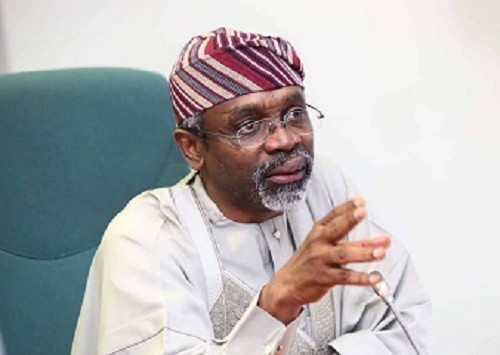
The Speaker of the House of Representatives, Femi Gbajabiamila, says the house is working toward amending the National Health Act to address gaps in accessing healthcare, including funding for gunshot victims.
He said this at the opening of the 44th/45th Annual General and Scientific Meeting of the West African College of Physicians, Nigeria Chapter in Abuja.
Gbajabiamila, who was represented by Hon. Tanko Sununu, the Chairman of, House Committee on Health, said that in the amended act, provisions were made for healthcare service providers to claim funds used to treat gunshot victims during emergencies.
He said the consideration was important as increasing cases of ‘no payment, no service’ for victims of gunshot wounds posed a serious concern.
According to him, Nigeria’s health indices remain poor and the national assembly will play its role through legislation to help address the causes of poor health delivery system in the country, one of which is accessibility.
He said, “in the next days to come, we will consider the amendment of the National Health Act which provides the basic framework upon which healthcare in the country is developed.
“The house of representatives is waiting for concurrence from the executive arm of government on the issue of emergency treatment for gunshot victims. We have tried to address the issue of gunshot injuries in the amended Health Act.
“In the previous Act, there was a gap on how this type of emergency should be addressed when presented at the hospital. The source of payment and services rendered to gunshot victims has become a worrisome issue.
“In the amended Health Act, we tried to proffer solutions where practitioners can claim the bills for services rendered to a gunshot victim. This will allow victims to access emergency healthcare promptly.”
The speaker, who noted that the country was currently facing three major crises of COVID-19, insecurity and dwindling resources, added that the crises had significantly impacted health indices.
He said, “NASS is working toward addressing the challenges by providing effective legislation, oversight, and representation.
“When the COVID-19 came to Nigeria we only had four laboratories to diagnose the virus but due to active budgetary allocation, we now have more than 130 laboratories nationwide that can be used to diagnose the virus.
“We are also trying to address issues affecting the health sector by making healthcare through the health insurance scheme mandatory in the country.
“The national assembly passed the bill already and we are hoping that the executive arm assent to the bill so that every Nigerian will have a basic minimum package that he or she can use to sustain health.
“The Basic Healthcare Provision Fund will not only come with a minimum package but will also improve the health sector’s readiness to address emergencies.
“We are also considering the Infectious Diseases Control Bill which tries to provide for emergency preparedness in the country.”
The speaker, while commending the WACP, assured that the NASS would consider all recommendations made by it after its AGSM and utilise it to influence legislative activities.
The Minister of State for Health, Dr. Olurunnimbe Mamora, listed the causes of Nigeria’s poor health indices to include inadequate human resources, poor data management and limited funding to scale up coverage of evidence-based interventions.
Others are the urban/rural skilled distribution of frontline workers, brain drain of skilled health workers to the western world, and COVID-19, which further compounded the health challenges in the country.
Mamora called on Ministries Departments and Agencies and other health partners to support efforts toward improving the system and providing quality services to citizens.
The News Agency of Nigeria reports that other stakeholders at the event charged the WACP, Nigeria chapter, to utilise the meeting in charting a way forward for the health sector and proffer workable solutions.
The FCT Minister, Mr. Muhammad Bello, represented by the acting Secretary for Health, Dr. Muhammed Kawu, and the Executive Director, National Primary Health Care Development Agency, Dr. Faisal Shuaib, represented by Dr. Usman Adamu, Director, Primary Health Care Systems Development of the agency were present.
Others were the WACP President represented by the WACP Director of Grants, Nigeria Chapter, Dr. Benjamin Ogochukwu, and Chief Medical Directors, among other stakeholders.
The theme of the 2021 WACP meeting is: “Nigeria’s Health Indices; Challenges and Prospects in a Contemporary World”.
The WACP is a professional body for medical specialists within the West African sub-region.
The medical specialists included doctors, physicians, and nurses.
(NAN)











